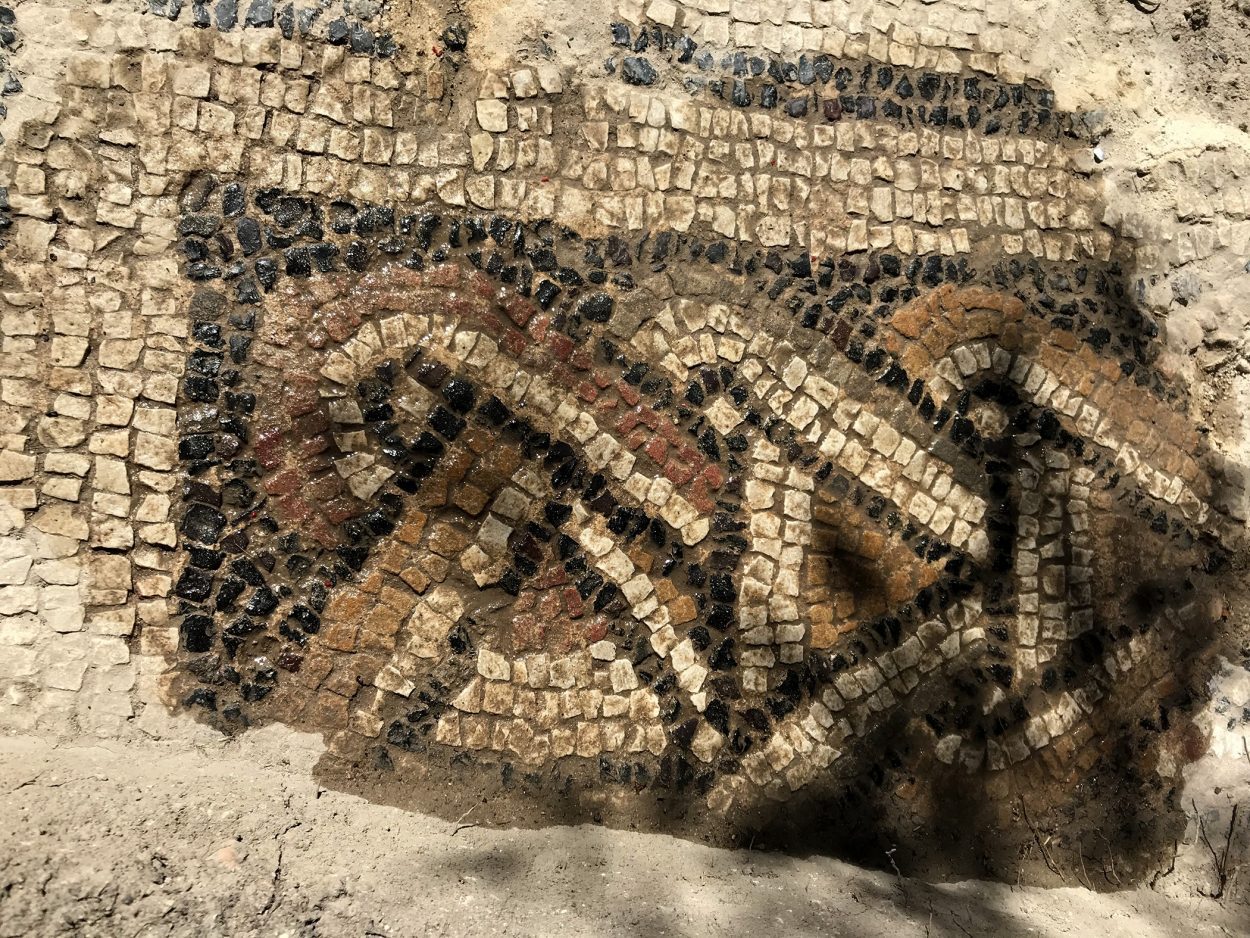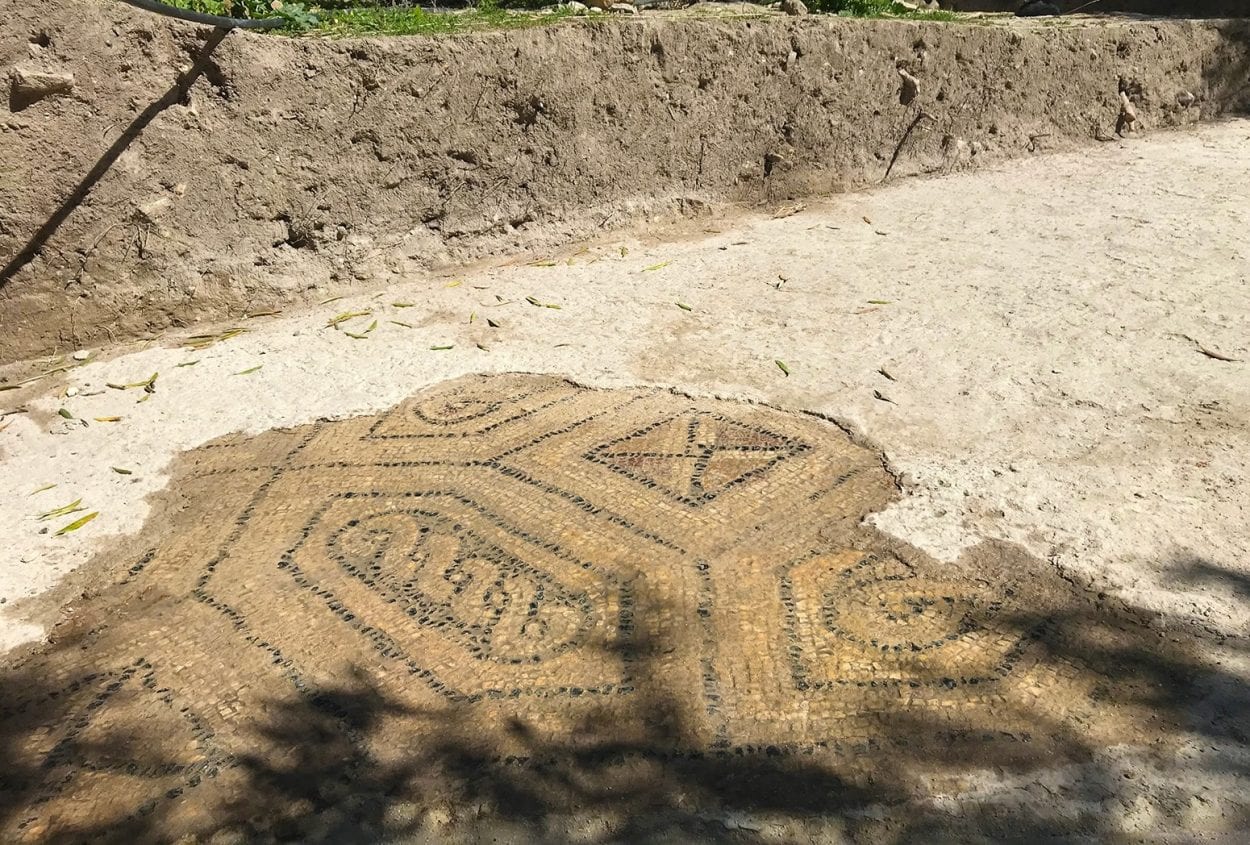Archaeologists from the University of Jaén Have discovered a giant mosaic in the recently excavated El Altillo Roman Villa Complex.
Indications of a major Roman site first became evident after the discovery of mosaic fragments called tesserae, in an olive grove in the small town of Rus located in southern Spain.
This led to the Ministry of Culture and Heritage of the Junta de Andalucía, with funding from the Rus town council to initiate exploratory excavations by the University of Jaén, and to evaluate the archaeological potential of the site.
Excavations were led by Marcos Soto Civantos and José Luis Serrano Peña who revealed an extensive Roman villa dating mainly from the 4th century AD, although they suggest that the site was occupied continually from between the 1st and 5th centuries.

Within the villa a 9 metre by 18 metre mosaic, consisting of geometric designs and guilloche patterns has been discovered, that represents one of the largest known mosaics discovered in the southern regions of Spain.
Adjacent to the villa archaeologists have also excavated a cemetery, a pottery kiln used for the production of tiles, and a mill for producing olive oil.
The Mayor of Rus, Manuel Hueso has stressed the importance of having the site declared an “Asset of Cultural Interest (BIC)”, which would allow the town council to access funds, both public and private, to undertake future excavations.
Hueso added: “We have made a very determined commitment to the heritage of Rus, not only to value what we consider to have the potential to publicise the history of the municipality, but also to rewrite the history of the olive grove in the province”.
Header Image Credit : Universidad de Jaen





